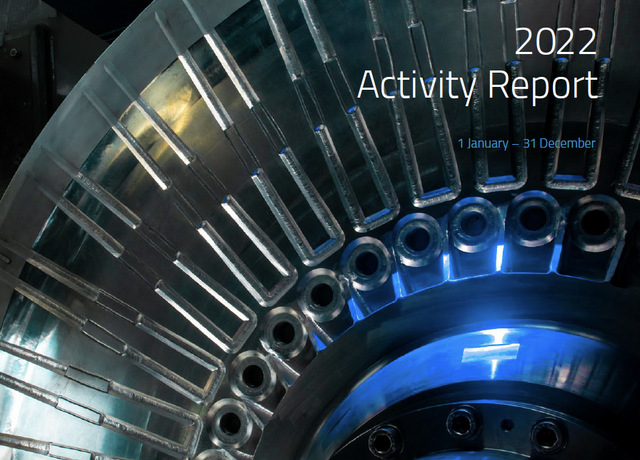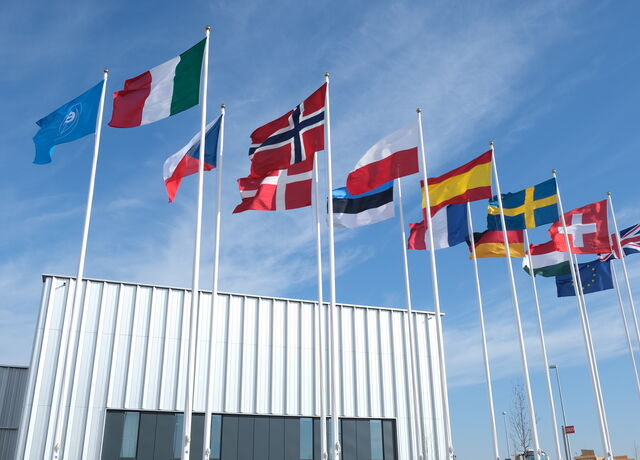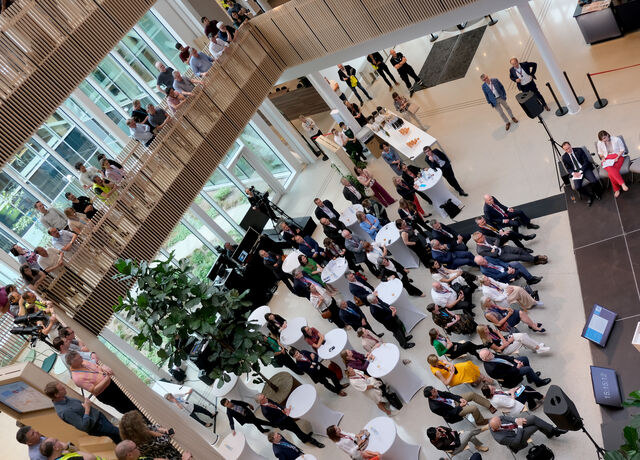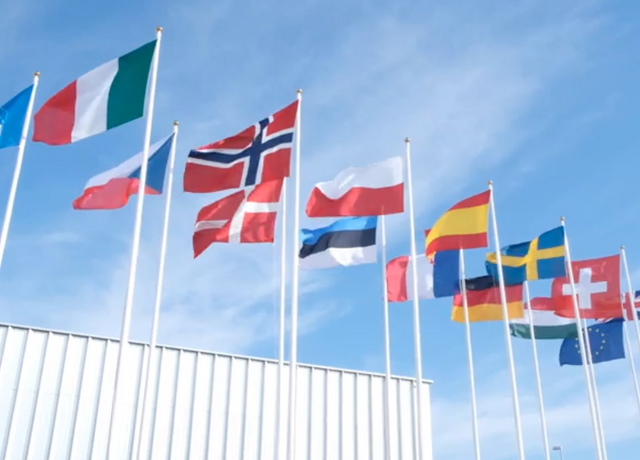Governance
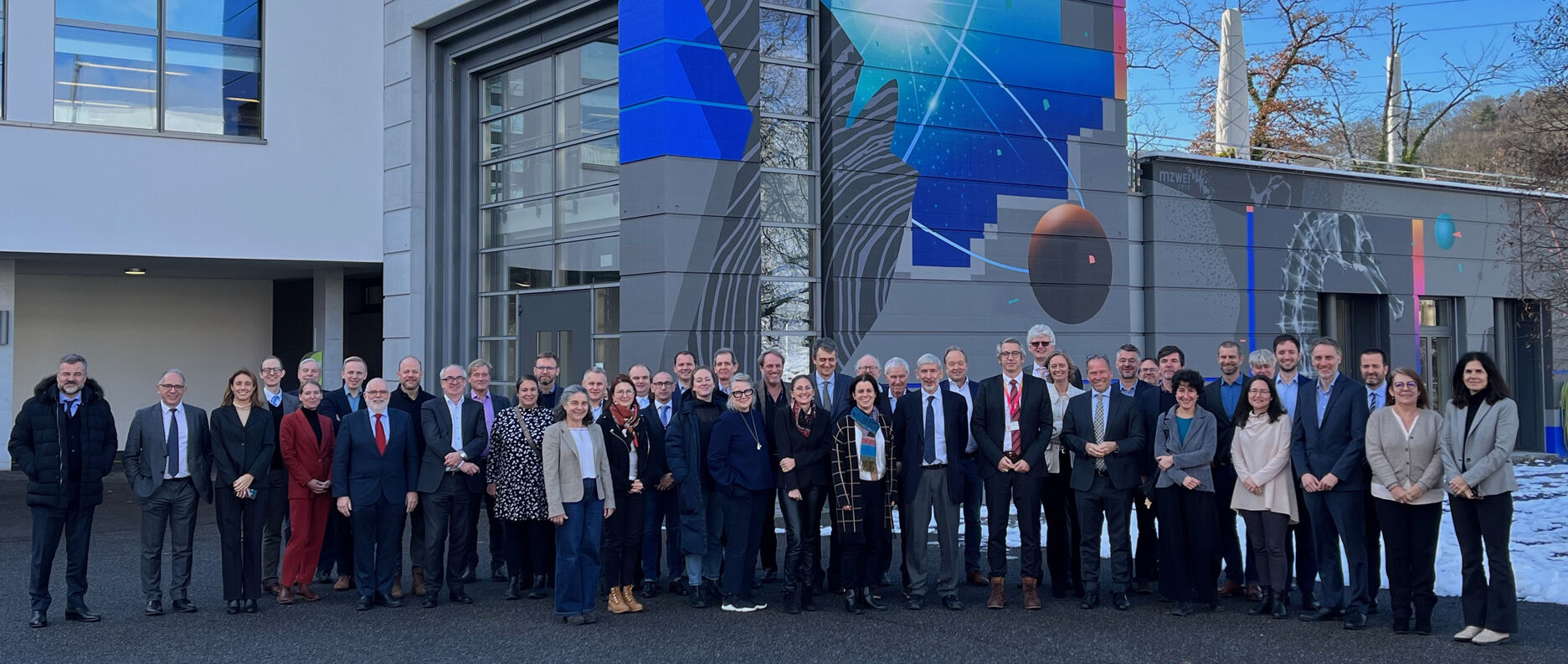
Members of the ESS Council and Management at the 36th Council Meeting, December 2023.
ESS is organised as a European Research Infrastructure Consortium, or ERIC, under the European Commission's ERIC legal framework.
Upcoming ESS Council Meetings and reports from meetings held:
Council MeetingsEuropean Spallation Source ERIC Council
The European Spallation Source ERIC is governed by the European Spallation Source ERIC Council, which is bound by the Statutes ratified by the ERIC Member Countries.
The constituting European Spallation Source ERIC Council Meeting was held on 2 & 3 July 2015, where the leadership was appointed, the Council Rules of Procedure were adopted, and the Terms of Reference for all advisory committees were adopted by the Council. The EC's establishment of ESS as an ERIC occurred on 31 August 2015, and the transition of ESS from a Swedish limited partnership to an ERIC was completed as of 1 October 2015.
Read more about the ERIC legal framework and related detailed legal documentation.
On 30 June 2023, the ESS Council elected Robert McGreevy of United Kingdom as its Chair and Andrea Fischer of Germany as Vice-Chair.
Appointed Leadership
Since 1 November 2021 the Director General of European Spallation Source ERIC is Helmut Schober.
Committees
The committees established by the ESS Council, including the Administrative and Finance Committee (AFC), In-Kind Review Committee (IKRC), Scientific Advisory Committee (SAC) and Technical Advisory Committee (TAC), serve as advisors to the ESS Council.
Delegates to the ESS Council
The ESS ERIC Council is composed of up to two delegates from each Member State, as well as a Chair and Vice-Chair appointed by the Council.
- Chair
Robert McGreevy
Science & Technology Facility Council – STFC, UK - Vice-Chair
Andrea Fischer
Federal Ministry of Education and Research – BMBF, Germany - Czech Republic
Marek Vyšinka (Research Infrastructures, Ministry of Education, Youth and Sports – MSMT)
Ondřej Svoboda (Nuclear Physics Institute of the Czech Academy of Sciences – UJF-CAS) - Denmark
Hans Müller Pedersen (Ministry of Higher Education & Research)
Jane Hvolbæk Nielsen (Technical University of Denmark – DTU) - Estonia
Priit Tamm (Estonian Research Council) - France
Sylvain Ravy (National Centre for Scientific Research – CNRS)
Marie-Hélène Mathon (Alternative Energies and Atomic Energy Commission – CEA) - Germany
Ralph Dieter (Federal Ministry of Education & Research – BMBF)
Martin Müller (Helmholtz-Zentrum Hereon) - Hungary
László Nemes (National Research, Development and Innovation Office - NKFIH)
Ákos Horvath (Centre for Energy Research – HUN-REN)
- Italy
Aldo Covello (Ministry of Education, Universities, and Research – MUR)
Pierluigi Campana (National Institute of Nuclear Physics – INFN) - Norway
Odd Ivar Eriksen (Research Council of Norway) - Poland
Marek Jezabek (Institute of Nuclear Physics of the Polish Academy of Sciences – IFJ-PAN)
Michał Goszczyński (Ministry of Science & Higher Education – MNiSW) - Spain
Ana Maria Aricha Yanguas (Ministry of Science, Innovation and Universities)
Jaione Ganzarain Epelde (Basque Department of Industry, Energetic Transition and Sustainability) - Sweden
Lars Börjesson (Chalmers University)
Viktoria Mattsson (Swedish Research Council – VR) - Switzerland
Xavier Reymond (State Secretariat for Education, Research and Innovation – SBFI)
Christian Rüegg (Paul Scherrer Institute – PSI) - United Kingdom
Mark Thomson (UK Research and Innovation – UKRI)
Ana Delgado (Department for Science, Innovation & Technology – DSIT)

























